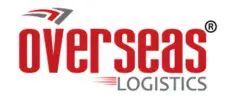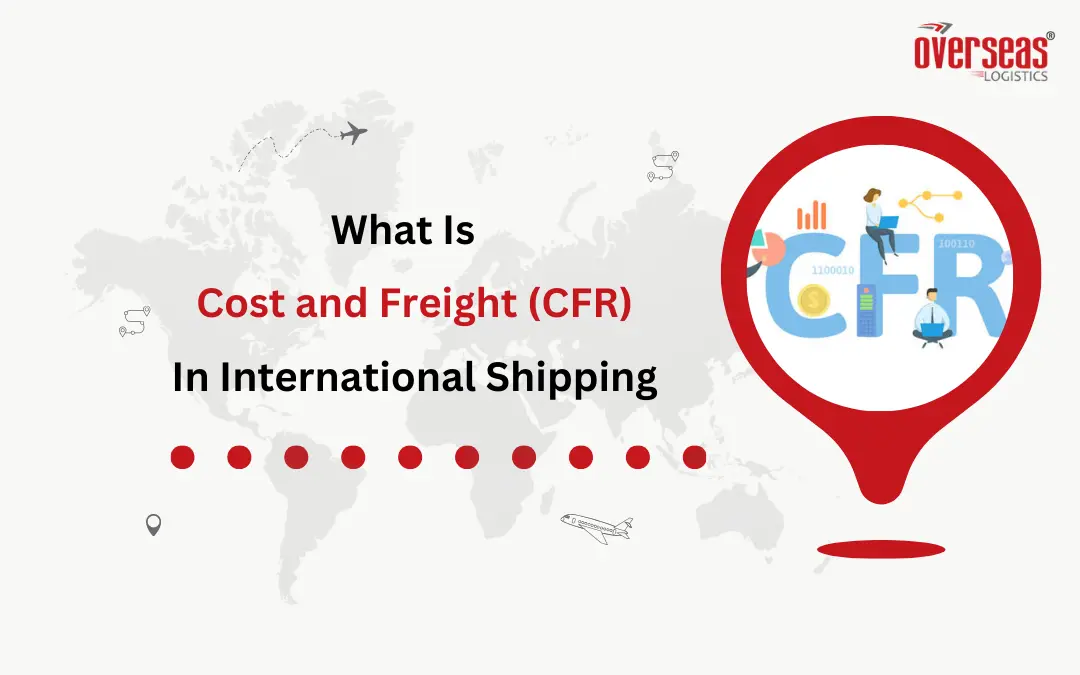Recognising the complexities of international trade, the International Chamber of Commerce (ICC) established Incoterms, a set of communication rules guiding merchants through global shipping. One crucial Incoterm is Cost and Freight (CFR), specifically tailored for sea and ocean freight. In this detailed guide, we explore the intricacies of CFR, shedding light on the responsibilities of both sellers and buyers.
Understanding Cost and Freight Incoterm (CFR)
Defining CFR:
CFR, or Cost and Freight, outlines obligations integral to the seller within an international trade contract. Tailored for sea and ocean freight, the seller’s mandate is to coordinate the carriage of goods to a designated destination port, covering associated costs until safely loaded onto the shipping vessel.
Cargo Types:
CFR is designed for bulk and non-containerised cargo, distinguishing it from other Incoterms like CPT (Carriage Paid To), more suitable for containerised cargo or multiple modes of transportation. For e-commerce businesses, mastering CFR is crucial for successful order fulfillment in the global market.
Seller’s Responsibilities in CFR
Delivering Goods to Buyer’s Specified Port:
Ensuring goods reach the buyer’s chosen port within agreed delivery schedules, coordinating with shipping lines for a seamless journey.
Paying for Transportation to Destination Port:
Bearing the financial burden of transporting goods to the destination port, including negotiating and managing freight fees.
Clearing Goods for Export:
Handling customs procedures, obtaining import export codes, and ensuring meticulous preparation of export documentation to avert delays.
Paying for Unloading at Destination Port:
Managing the financial implications of unloading costs, either factoring them into the contract or explicitly stating as the buyer’s responsibility.
Export Packaging and Marking:
Ensuring secure packaging and accurate labeling for goods to withstand the ocean journey.
Pre-Carriage to Terminal:
Organising pre-carriage logistics, transporting goods efficiently and cost-effectively from the warehouse to the port of departure.
Pre-Shipment Inspection:
Conducting quality assurance through pre-shipment inspection to meet buyer standards and regulatory requirements.
Buyer’s Responsibilities in CFR
Paying for the Goods:
Managing financial transactions aligned with the sales contract terms, covering the cost of goods and shipping expenses up to the destination port.
Delivery to Final Destination:
Taking responsibility for onward transportation from the destination port to the final stopping point, engaging local carriers for efficient delivery.
Insurance Coverage of Goods:
Securing shipping insurance from the moment goods are loaded onto the vessel is crucial for risk management.
Import Clearance and Duties:
Clearing import duties, and handling all procedures and documentation required for legal entry into the destination country.
Customs Handling Fees at Destination:
Dealing with applicable customs handling fees in the destination country, incorporating them into overall financial planning.
Payment of Duties and Taxes:
Taking responsibility for paying all relevant duties and taxes, ensuring adherence to tax regulations.
Advantages of CFR for Online Businesses
- Clarity in cost allocation for effective financial planning.
- Minimisation of unexpected or hidden shipping fees.
- Clearly defined responsibilities between seller and buyer, crucial for online businesses.
- Seller-focused shipping logistics enable online businesses to concentrate on core activities.
- Predictability and control in international shipping with a defined point of risk transfer.
- Flexibility for buyers to arrange insurance tailored to their needs.
Disadvantages of CFR for Online Businesses
- Immediate shift of risk to the buyer upon goods loading onto the vessel.
- Buyers must arrange comprehensive insurance coverage.
- Buyer bears subsequent expenses like unloading, import duties, taxes, and transportation to the final destination.
- Impact on pricing strategies for eCommerce businesses in competitive markets.
When Businesses Should Use CFR
For businesses, especially in eCommerce, CFR is advantageous for bulk and non-containerised cargo, such as raw materials or large machinery. Direct loading onto the ship minimises handling and potential damage, making CFR strategic for specific cargo types.
Conclusion
CFR offers cost efficiency, risk distribution, and logistical clarity for online businesses entering or expanding within the global market. When understood and applied astutely, CFR, like all Incoterms, becomes a strategic tool providing a competitive edge. Businesses can leverage tech-enabled platforms like Overseas Logistics for hassle-free freight forwarding and finding the best international courier services.
FAQs
What is the freight cost?
Freight costs include transport, fuel charges, local taxes, special charges, handling charges, and emergency costs.
Is CFR cheaper than CIF?
Depending on insurance deals, CFR may be cheaper and safer for buyers than CIF.
How is the CFR price calculated?
CFR price considers the cost of goods, labor, packaging, insurance, transportation, customs, taxes, and port fees. It can also be calculated as CFR Price = FOB Price + Shipping.
Difference between CFR and FOB?
FOB places responsibility on the buyer once goods are loaded onboard; CFR shifts risk to the buyer after loading onto the ship.
Difference between CIF and CFR?
CIF includes insurance; CFR focuses on transporting goods by sea, excluding insurance.
Incorporate CFR strategically to gain a competitive edge in global eCommerce. Explore Overseas Logistics for streamlined freight forwarding and international courier services.

